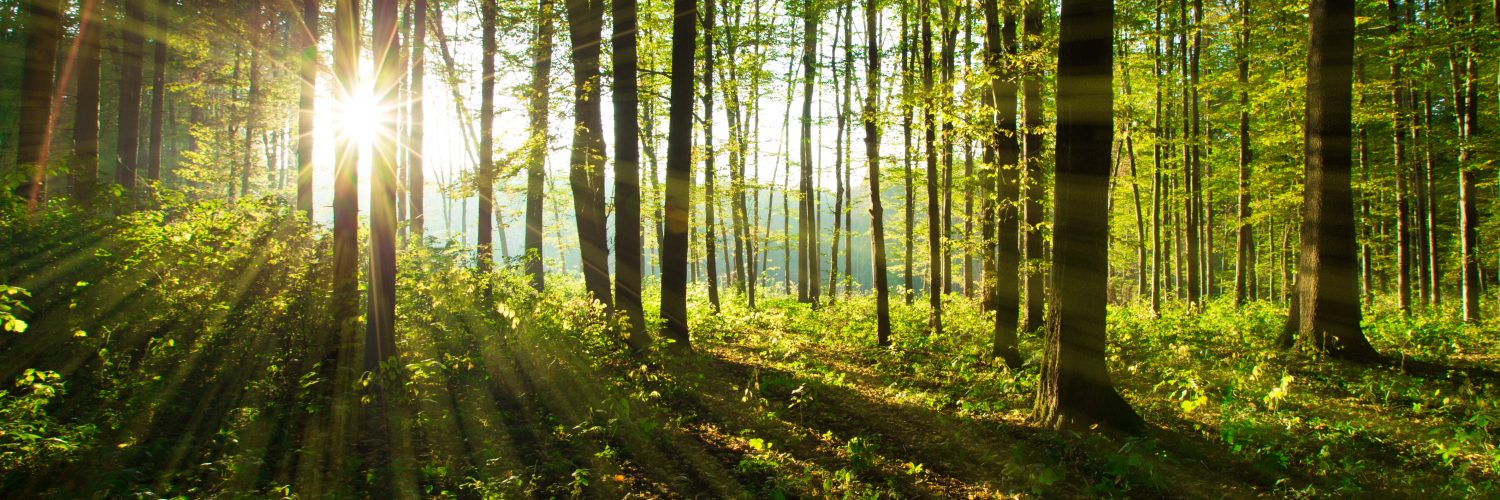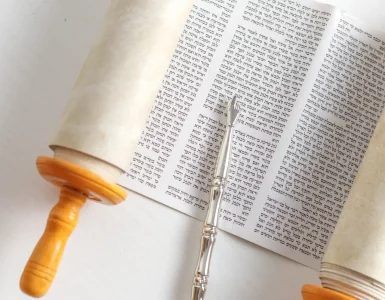Environmental allergies are common and affect up to one-third of the world’s population. A wide variety of allergens can cause the symptoms that characterize allergic reactions, including tree, grass, and weed pollen, different types of wood, dust mites, mold, insects, and pet urine, saliva, or dander (dead skin cells). Exposure to these substances can trigger adverse symptoms in people with allergies. Some substances cause allergic reactions even in small doses and at a distance from the source, while others generally only affect people only in larger doses and in close proximity to their origin.
When the body is exposed to allergens that it recognizes as foreign, it responds with a cascade of reactions. Mast cells release histamine, which in turn leads to inflammation and tearing, congestion and itching, along with constriction of smooth muscle in the respiratory tract that leads to shortness of breath. In severe cases, fatal anaphylactic shock can occur. The allergic reaction is fundamentally an immune response to harmless substances instead of pathologic infectious organisms like bacteria or viruses. In addition, a person with allergies is at increased risk of developing additional allergies or asthma.
Primary care physicians can generally diagnose and treat allergies, but evaluation by an allergist may be warranted. Allergy testing will determine the substances to which a person is allergic and can be performed by either skin prick or blood tests. Although medications can relieve symptoms and immunotherapy (“allergy shots”) can lead to lasting remission of symptoms, there is no known cure for allergies. The best way to avoid allergic reactions is to avoid coming in contact with the allergen(s) altogether.
This essay will discuss several Halachos pertaining to a theoretical scenario in which two neighbors get into a dispute over one possessing substances to which the other is allergic:[1]
Reuven occupies the ground floor apartment of a large apartment building and plants several fruit trees in his garden. Some years later, the tenants living upstairs vacate their apartment and Shimon moves in. When spring arrives, Shimon finds that he is suffering terribly from allergies. Upon surveying the area, he discovers the source of his problem: Reuven’s fruit trees! He promptly asks Reuven to remove the trees from his property as they are causing his severe allergic reaction. Does Shimon have a valid claim against Reuven?
The Gemara in Bava Basra (26a) records the following incident: Rava bar Rav Chanan had palm trees growing on the edge of his property attracting birds to the area that caused damage to R’ Yosef’s neighboring property. When R’ Yosef requested that Rava cut down his trees to prevent further damage to his property, Rava replied that since it is forbidden to cut down a fruit-bearing tree, he could not comply. He told R’ Yosef that if he wanted the trees cut down, he would have to do it himself.
The Gemara implies that Rava would have been obligated to cut down the trees to prevent further damage to Rav Yosef’s field if not for the prohibition to cut down a fruit bearing tree (due to “Bal Tashchis”). Tosfos (s.v. “Ana”) derives an important principle from this: It is incumbent upon the Mazik (the one causing the damage) to distance his property from his neighbor so as not to cause him damage.
However, Tosfos’ view is disputed by the Ramban. The Ramban argues that if it were true that a Mazik must distance his property from his neighbor, Rava would have been required to so – the prohibition of “Bal Tashchis” notwithstanding. Accordingly, the Gemara is a proof to the opposite conclusion: a Mazik is not required to distance his property from his neighbor. Many Rishonim concur with the Ramban and this is the accepted Halacha.
At first glance, the Gemara’s case seems identical to our case. However, we must consider whether Reuven is considered a Mazik at all.
In the Laws of Hilchos Sh’cheinim (Laws of Neighbors), distinctions are drawn between different types of activities that could cause damage to the neighboring residents. As a general rule, one cannot object to a neighbor’s work or business just on account of it being noisy – disturbing the peace and quiet in the area is not considered bona fide damage. (This is true regarding an already established business. This claim could, however, be used to prevent a neighbor from opening a business.) A noteworthy exception to this rule is where the affected neighbor is unusually sensitive to loud noises. In this case, the noise is considered as damaging as “Kutra” (heavy smoke) and “Beis haKisei” (an outhouse) and he has a valid claim against his neighbor.
The Rivash (196) discusses a case of a person operating a weaving business in his home and the resulting noise was damaging an unwell neighbor. The Rivash rules that the unwell neighbor had the right to demand that the weaving be discontinued. Although a person cannot be prevented from performing noisy work on his property, if his neighbor is unwell and the noise causes actual damage, the neighbor has the right to demand that the work be stopped.
The Chiddush in the Rivash’sruling – as noted by the Chazon Ish (Bava Basra, 13:11) – is that even if a particular activity is generally not damaging, it can be considered damaging to select individuals to whom it affects. Applying this to the case at hand, although the fruit trees on Reuven’s property are not damaging to anyone except for the neighbor with allergies, he nevertheless has the right to demand the removal of the trees from the premises.
The Chazon Ish (ibid, 14) opines that the ruling of the Rivash only applies to something like that which is at least bothersome to most people, although only damaging to a few. However, an activity that is not bothersome at all to most people, but does harm a certain individual, cannot be contested since this activity cannot objectively be classified as “damaging.” Hence, one might reason that Shimon cannot contest the presence of the trees since the trees are not bothersome at all to most people. However, this is not the case. As Rav Segal points out, this argument is invalid because allergies clearly are considered “damage” since they are so common, as noted in the introduction to this essay.
On the other hand, it should be noted that for Shimon to have a claim against Reuven we must ascertain that his symptoms are severe. If his allergic reaction is minor, Reuven would not be considered to be damaging him, and no claim could be made. A doctor should be consulted to assess the severity of the allergies; Shimon himself may not demand that his personal assessment or report be accepted in Beis Din (for a similar ruling, see Shulchan Aruch, 154:33).
There is a well-known dispute between R’ Yosi and the Chachamim regarding the basic laws that govern Nizkei Sh’cheinim. According to R’ Yosi it is incumbent upon the Nizak (the damaged party) to distance himself from the Mazik (the damaging party). However, the Chachamim hold that it is the Mazik’s responsibility to ensure that his property not damage his neighbors. The Halacha follows R’ Yosi. R’ Yosi concedes that in a case of “Giri Dilei” (“His arrows” – where the damage may be compared to arrows shot from one property to the other[2]) it is up to the Mazik to distance himself and avoid damaging his neighbor.
In our case, although the damage would not be considered Giri Dilei, it would be considered Grama D’Giri (indirect Giri). This is because the travel of the allergens via the wind is attributed to the owner of the trees as a Grama. The source for this rule is the Gemara (ibid. 26a) that discusses chaff (“Rakta”) produced when beating flax[3] that was blown by the wind and caused damage. The Gemara cites a disagreement in this regard but the Halacha follows the opinion that requires the Mazik to prevent the chaff from leaving his property and damaging others as codified by the Shulchan Aruch (C.M., 154:34, see also ibid. 36) who rules that a neighbor whose work produces dust (and the like) must distance himself from his neighbors, ensuring that the dust not be carried via the wind to other properties in the vicinity.
The Rishonim ask why the aforementioned Gemara only considers the possibility of obligating the Mazik under the Laws of Nizkei Sh’cheinim and Giri Dilei. Why does it not consider the owner of the chaff to be responsible as a Mazik of “Aish” (fire)? This ought to be similar to a case where a person leaves an object on his property and the object is carried by the wind and causes damages to others – the owner of the object is responsible to pay for damages under the category of “Aish.”
The Ramban answers that in the case of beating flax, the chaff is being beaten to the ground, which should prevent it from flying off his property since the wind would be unable to spread it once it hits the ground. The fact that the wind managed to blow it off of his property before it hit the ground is not a reason to obligate the owner since the wind blowing the chaff is not considered his action. By contrast, the case in which a person is obligated due to “Aish,” is when he places an object in a location where the wind is likely to carry it away.
Following this line of reasoning, a person who places flowers in his property where the wind is likely to carry the pollen to neighboring properties should be considered to have damaged his neighbors under the category of “Aish.”
Rabbenu Yonah and the Rashba offer a different distinction between the cases of the chaff and the Aish. In the case of Aish, the wind merely carried the item from place to place, but the item itself caused the damage. However, in the case of chaff, it was the impact of the chaff[4] that caused the damage, accordingly the wind plays a part in causing the damage, somewhat lessening the responsibility of the one who freed the chaff by beating the flax.
According to this reasoning as well, the damage caused by the pollen would be classified as Aish since the damage is being caused directly by the pollen itself and is not due to the force with which it collides with the neighbor.
However, in spite of all of the above, it is possible that our case would still not be classified as Aish based on the Chazon Ish’s comments on the above Gemara. The Gemara elsewhere in the Sugya compares the damage wrought by chaff to damage done by a spark produced by a hammer blow. The Chazon Ish asks that according to the Rashba there should be no comparison between the two cases. Damage wrought by the chaff is at most Giri Dilei, but damage done by a spark is Aish since it is the spark itself that ignites the fire and not the force of the wind that propelled the spark! The Chazon Ish answers that if not for the wind the spark would have extinguished itself immediately and not caused damage; as such, the wind has an essential role in causing the damage and, therefore, the damage is not considered as Aish.
Accordingly, in our case, since the pollen does not cause damage unless it comes into contact with the allergic person, the damage caused should not be considered Aish. Nevertheless, in the final analysis, the Mazik will nevertheless need to remove his pollen-producing flowers because they are considered at least a Grama of Giri Dilei.
This is true of a person who plants allergenic flowers in his garden. If he plants a tree in his garden that will only blossom in the distant future, the Halacha may be different. In that case, the Mazik only damages by means of a Grama (indirectly), as made clear by Tosfos (Bava Basra, 26a, s.v. “Aval b’Gefanim”) and the Ramban (ibid. 22b).
Even though the blossoming trees are the property of the owner, the Halacha in this case is a matter of dispute among the Rishonim. In Kuntrus Dina D’Garmi, the Ramban rules that the Mazik is not obligated to distance the trees from the neighbors because (as the Nesivos haMishpat 154:18 explains) one is not obligated to ensure that his property does not cause damage if doing so would involve forfeiting the usage of his property.
However, the Rosh (Shu”t 108) (quoting the Baal Ha’Itur) holds that the Mazik is required to distance his trees so that they do not cause damage to the neighbors. This also seems to be the opinion of the Rashba (beginning of Bava Basra). Even according to this opinion, it would seem that Bedi’eved, once the damage has been done, the Mazik need not pay for the damage since the damage was merely caused by a Grama.
One factor that could change this ruling is whether the tree was planted before the neighbor moved into the adjacent property (as in our example). According to many Rishonim, the damage caused by the tree is not called Girei at all (see the Beis Yosef, Choshen Mishpat, 55:47 who concurs with this view). At the very least, the Mazik can say “’Kim Li’ (I hold) like this opinion” and thereby exempt himself from having to remove the trees (this concept is discussed by Rabbi Akiva Eiger in his Kuntrus on Harchakas Nezikin). Rav Segal also considers other Halachic factors that may have a bearing on this case, but they are beyond the scope of this essay.
In conclusion, Rav Segal writes:
If a person places flowerpots or plants a tree that has already blossomed in his garden, his neighbor has the right to demand that they be placed elsewhere.
If he plants a seed or a tree that has not yet blossomed, the neighbor cannot force him to move them. Still, it would be praiseworthy (Midas Chasidus) to go beyond the letter of the law, and to allow the neighbor to cut down the tree himself if he wishes.
[1] This is essay is based on the excellent work of Rav Shalom Segal on this topic which that appears in the Tzohar Journal, 5759.
[2] [Editor’s note: Rashi (s.v. “b’Giri Dilei”) explains “where the damage occurs from the hands of the Mazik” and quotes the example of the Gemara in Bava Metzia 117a where the floor of a second-floor dwelling had eroded such that every time he washed his hands, the water would fall directly from his hands into his downstairs neighbor’s apartment.]
[3] [Editor’s note: When preparing flax for linen, one of the stages is “scutching” or “swingling”, which involves vigorously whacking the fibers with a wooden blade to remove extraneous woody material (chaff or Rakta).]
[4] Upon collision with other items












